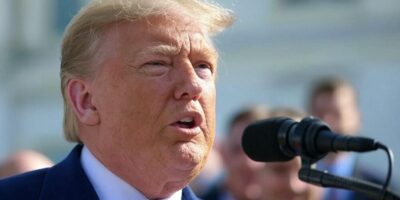In recent news, former Florida Attorney General Pam Bondi has been vocal about the importance of stringent immigration enforcement. Her stance has sparked significant discussion across various platforms, drawing both support and criticism. The debate surrounding immigration policy isn’t new, but its implications on the economy and individual financial well-being continue to be a point of interest.
The Current Immigration Debate
The crux of the current debate centers around the balance between maintaining national security and fostering economic growth. Bondi’s perspective emphasizes the need for robust immigration policies to safeguard American jobs and resources. She argues that unchecked immigration can strain public services and depress wages for American workers.
Proponents of stricter immigration enforcement argue that it protects domestic labor markets and ensures that resources are directed toward citizens. However, critics highlight the economic contributions of immigrants, noting their role in filling labor shortages and driving innovation.
Economic Contributions of Immigrants
Immigrants have historically played a vital role in the U.S. economy. They contribute to various sectors, including technology, agriculture, and healthcare. Immigrant entrepreneurs have founded numerous successful businesses, creating jobs and stimulating economic growth.
Labor shortages in certain industries, such as agriculture and construction, are often alleviated by immigrant workers. These workers are willing to take on roles that are less attractive to native-born citizens, helping to keep these sectors productive.
Financial Lessons from Immigration Policies
From a financial perspective, the immigration debate offers several lessons. Firstly, it highlights the importance of adaptability in the workforce. Just as countries must adapt to changing demographics, individuals must be prepared to pivot and develop new skills to remain competitive in the job market.
Secondly, it underscores the value of investing in education and training. As the economy evolves, so too do the skills required to succeed. Continuous learning and skill development are crucial for financial stability and growth.
Investing in Human Capital
Investing in human capital is a smart financial strategy. This means not only acquiring new skills but also understanding market trends and aligning personal development with these trends. As industries evolve, so do opportunities for employment and entrepreneurship.
For instance, technological advancements have created demand for expertise in areas like cybersecurity, data analysis, and software development. By gaining proficiency in these areas, individuals can enhance their employability and earning potential.
Financial Planning in an Uncertain Economy
The immigration debate also serves as a reminder of the importance of financial planning. Economic policies can shift rapidly, impacting job availability and stability. Having a robust financial plan that includes saving, investing, and risk management can help individuals weather economic uncertainties.
Creating a diversified investment portfolio, for instance, can protect against market volatility. Additionally, maintaining an emergency fund ensures financial security in the face of unexpected changes in employment or income.
Building Wealth Through Diverse Opportunities
Diversification isn’t just for investments; it applies to income sources as well. Exploring multiple streams of income can provide financial resilience. This might include part-time work, freelancing, or investing in rental properties.
Entrepreneurial endeavors are another avenue for wealth building. Immigrants often exemplify this by starting small businesses that serve niche markets. Entrepreneurship requires risk-taking, but it also offers the potential for significant financial rewards.
The Role of Policy in Economic Growth
Government policies, including immigration laws, have a direct impact on economic growth. Policies that encourage innovation and entrepreneurship can stimulate job creation and economic expansion.
Individuals must stay informed about policy changes and understand how these changes might affect their financial plans. Engaging in civic discussions and advocating for policies that support economic growth can also contribute to a more prosperous society.
Learning from Immigrant Success Stories
Immigrant success stories often highlight resilience, adaptability, and hard work. These qualities are essential for financial success, regardless of one’s background. By emulating these traits, individuals can overcome financial challenges and achieve their economic goals.
Networking and community building are also integral to financial success. Immigrants frequently rely on community support to establish themselves and grow their businesses. Building a strong network can open doors to opportunities and provide valuable resources.
The Future of Immigration and Economic Policy
As the immigration debate continues, it’s crucial to consider the broader economic implications. Policies that strike a balance between security and opportunity can lead to sustainable economic growth.
For individuals, staying informed and adaptable is key. By understanding the economic landscape and proactively managing finances, individuals can thrive in a dynamic world.
The intersection of immigration and economics is complex, but it offers valuable insights into financial planning and wealth creation. By learning from current events and historical trends, individuals can better position themselves for financial success.
“





